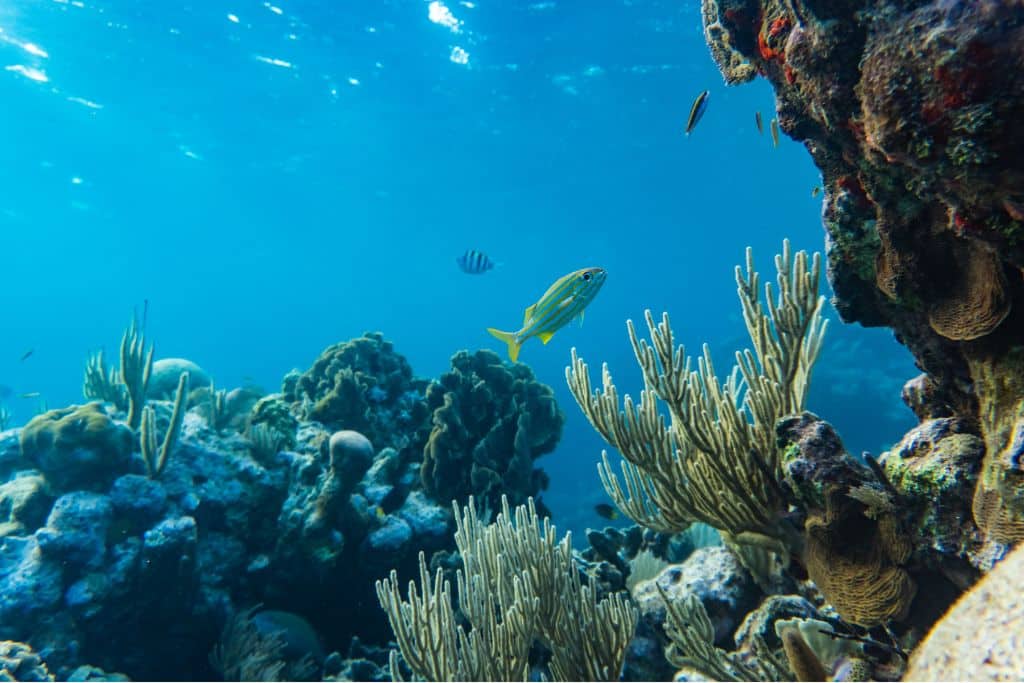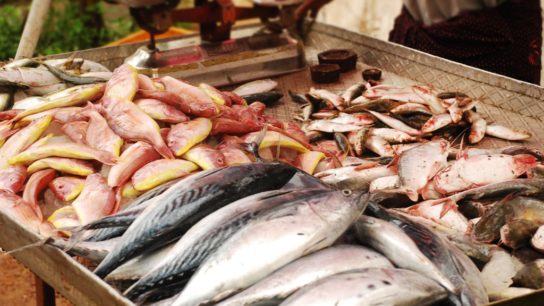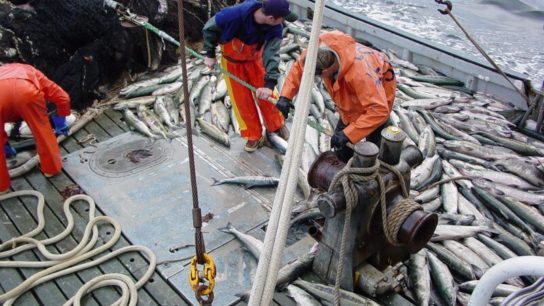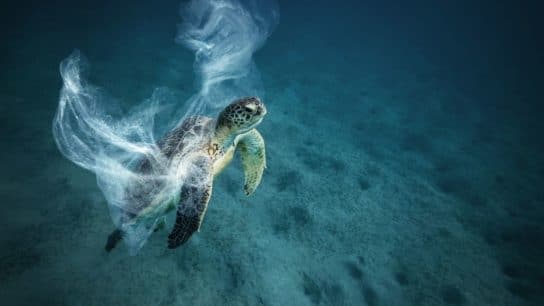Deep-sea mining is highly controversial for the potential impacts it could have on the ocean habitat and marine ecosystems, many of which are still unknown to humans.
—
In a highly controversial move, Norway’s parliament on Tuesday approved a bill to kickstart seabed exploration for deep-sea mining.
The vote effectively allows explorations across more than 108,000 square miles (280,000 sq km) of seabed in Arctic waters, an area between Norway and Greenland bigger than the United Kingdom, and gives companies the green light to apply for permits to drill. With the vote, the country joins a growing list of nations that in recent years have expressed interest in deep-sea mining, including Japan, New Zealand, and the Cook Islands.
Deep-sea mining refers to extracting metals and minerals from the deep ocean floor at depths ranging from 200 to over 6,000 metres. The seafloor is rich with high-value mineral deposits, including precious metals (gold, silver), metal ores (manganese, nickel, cobalt, copper), and rare earth elements used in electronics.
While developing these resources could provide essential materials for the green energy transition, the decision prompted outcries from scientists and environmental groups, who argue that the benefits of deep-sea mining do not outweigh the environmental impacts on marine ecosystems and say it is “a huge step in the wrong direction.”
“The Norwegian government always highlighted that they want to implement the highest environmental standards,” Martin Webeler, an oceans campaigner at the Environmental Justice Foundation, told the BBC. “That is hypocritical whilst you are throwing away all the scientific advice.”
In a statement released Wednesday, the Norwegian government assured that “extraction will only be permitted if the industry can demonstrate that it can be done in a sustainable and responsible manner.”
Environmental Impacts
Deep sea ecosystems are extremely fragile. Seafloor habitats and unique species, from tube worms to microbial communities, could be wiped out if mining proceeds recklessly. Light and noise pollution, sediment plumes, habitat disturbance and pollution from mining activities threaten biodiversity well beyond the immediate mining zones. Bottom trawling has already devastated many seamount complexes; mining could decimate those that remain. Evidence shows deep sea communities take decades or more to recover – if they can recover at all. The cumulative impacts could also disrupt vital food chains and ocean processes we depend on.
The deep sea’s biodiversity remains mostly unknown – only an estimated 1% of species have been discovered so far. Each new voyage reveals new species and habitats, increasing concerns over extinction risks.
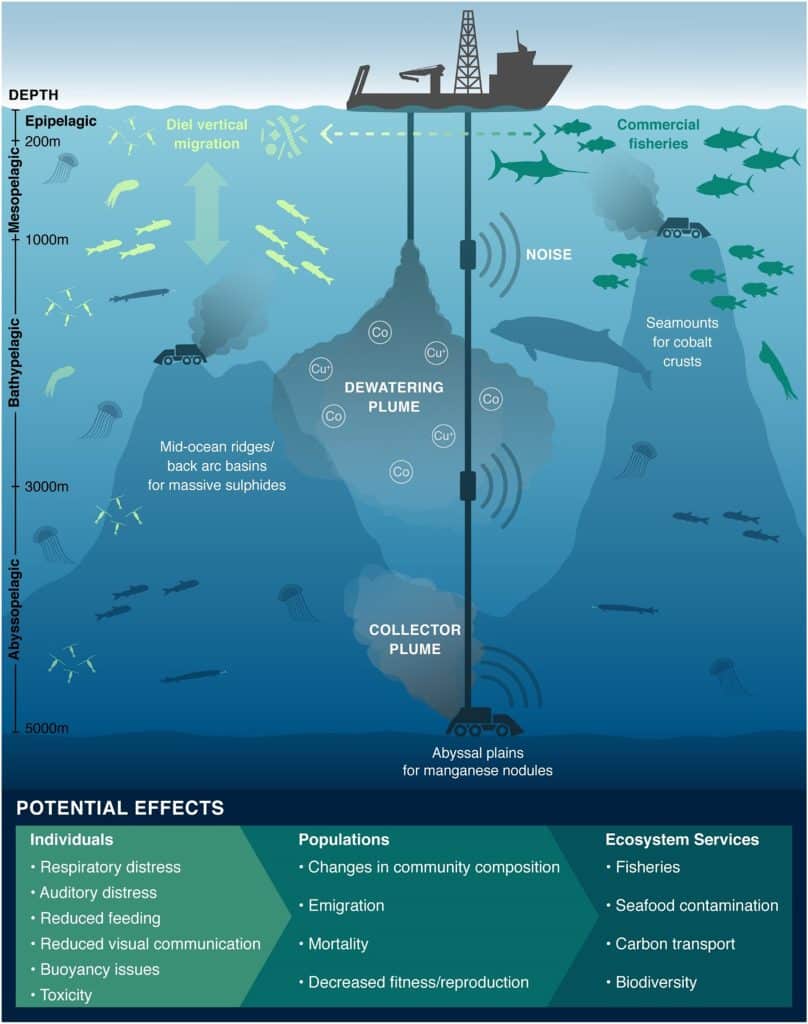
Besides threatening biodiversity, deep-sea mining could also significantly impact global carbon dynamics. Sediment plumes could impede carbon capture by marine organisms, while seafloor sediment disturbance could release stored carbon into the oceans and atmosphere, aggravating climate change. One study estimated nodule mining could reduce ocean carbon storage by 16 million metric tons per year on average – equivalent to the annual carbon footprint of over 3 million US cars. The actual impacts are still speculative but undoubtedly carry long-term consequences extending centuries into the future.
International Backdrop
In July 2023, delegates from over 160 nations gathered in Kingston, Jamaica, for two weeks of intense negotiations over the rules governing deep-sea mining in international waters. For years, the International Seabed Authority (ISA) has been working to develop regulations to manage this emerging industry that holds both promise and peril for the oceans.
The ISA was established under the UN Convention on the Law of the Sea to organise and control mining activities in the seabed beyond national jurisdiction, covering nearly 50% of the planet. Since 2001, the body has granted over 30 exploration licences, but full commercial mining has not yet begun.
With the talks in Jamaica, the Authority entered the endgame of rule-setting but debates remain on key issues like environmental protections and profit sharing. The negotiations concluded with some progress but no final settlement, leaving the fate of deep seabed mining uncertain. However, one thing is clear: the final decision on formal deep-sea mining regulations, expected next year, will have profound impacts stretching far into the future.
In the meantime, the Deep Sea Conservation Coalition and over 100 other groups have called for a moratorium until more research and effective regulations are implemented. Greenpeace, WWF, IUCN and numerous researchers support a moratorium as well.
You might also like: Deep-Sea Mining: World’s Oceans Facing a New Threat








